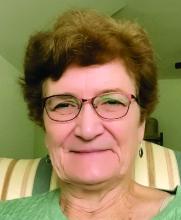Almost all primary care providers (PCPs) have taken on diagnosing and managing ADHD. With about 12% of school aged children affected, typical PCPs can expect about 240 children with ADHD under their care. Adopting this primary care function has been helped by having clear diagnostic criteria for the three DMS 5 “presentations” of ADHD, open source tools (e.g. Vanderbilts), expectation of collaboration by educators, American Academy of Pediatrics (AAP) guidelines for diagnosis and management, Society for Developmental–Behavioral Pediatrics guidelines for “complex ADHD,” and access to effective medication treatments PCPs can provide (although less so for behavioral ones), cultural acceptance of individuals with ADHD, and especially reliable payment by insurers.
Screening
But what about PCP management of autism spectrum disorder (ASD), now affecting 2.8%, for an expected 60 children under care for each of us? It is more essential because very early detection and entry into evidence-based intervention has long-term benefits for the child and family that are not as crucial for ADHD. While ADHD symptoms may not impact functioning until age 7 or even 12 years of age, signs of ASD usually emerge earlier (by 18 months) but gradually and about 30% after apparently normal development even to age 2 years.
Screening is crucial, but unfortunately not perfect. Recent AAP surveys show that most PCPs screen for autism at the recommended 18 and 24 months. But what happens after that? How many offices are tracking referrals for positive screens for needed evaluations and early intervention? Our data shows that tracking is rarely done and children do not start to get the benefit of early intervention until 4.5 years of age, on average.
Diagnostic Testing
And screening is the easiest part of addressing ASD. Wait times for diagnostic testing can be agonizing months to years. Multiple programs are training PCPs to perform hands-on 10- to 30-minute secondary screening with considerable success. You can become proficient on tools such as STAT (Screening Tool for Autism in Two-Year-Olds), RITA-T (Rapid Interactive Screening Test for Autism in Toddlers), BISCUIT (Baby and Infant Screen for Children with Autism Traits), SORF (Systematic Observation of Red Flags), ADEC (Autism Detection in Early Childhood) or CARS (Childhood Autism Rating Scale) with a few hours of training. Even secondary assessments done virtually by PCPs such as TELE-ASD-PEDS quite accurately predict a verifiable ASD diagnosis for those referred by concerns. Some problems of the reported accuracy of these secondary screening processes have to do with validation in samples of children for whom parents or clinicians already had concern and generally not including many younger children in whom it is so important to detect. Level of confidence of developmental and behavioral pediatricians of the presence of ASD is highly related to ultimate diagnosis. But success with PCPs’ mastering secondary screening has not yet been reported to convince insurers to approve payment for intervention services such as Applied Behavior Analysis (ABA).

